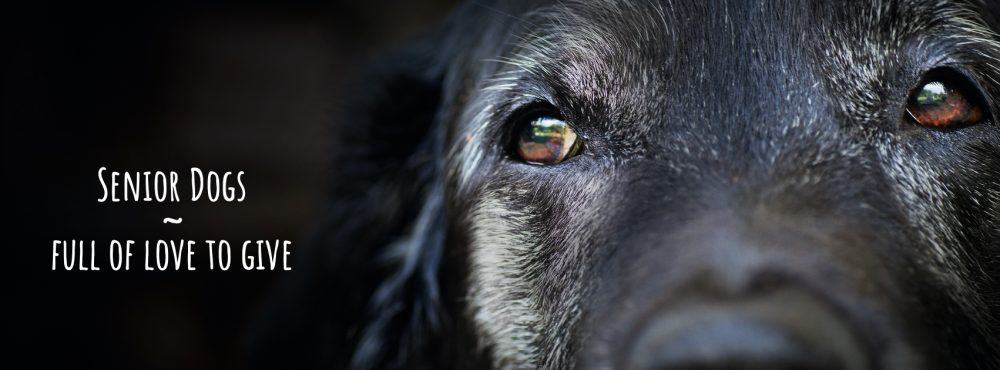Senior dogs can live happy, healthy lives. However, as our canine companions age, we are sure to notice some health changes. Just like with humans, senior pets are predisposed to certain disease conditions, such as arthritis heart disease, kidney disease and cancer. Owners tend to observe an overall “slowing down,” lower endurance when exercising, decreased agility and mobility, and sometimes personality changes. Some dogs become less enthusiastic about toys, games, and food. Dogs may appear confused, disoriented, or less responsive than they were in their youth. They may even urinate or defecate in the house. Age is not a disease, but age sometimes brings with it problems that need to be managed.
- Arthritis – Just like people, many dogs develop arthritis as they age. The most common form of arthritis seen in aging dogs is osteoarthritis, also called degenerative joint disease. This condition mainly affects the weight-bearing joints (hips, knees, elbows, shoulders), causing loss of lubricating fluids, wearing away of cartilage, and abnormal bone growth. These joint changes result in pain, stiffness, and decreased range of motion. Osteoarthritis is progressive, meaning it gets worse over time. Though there is no cure, there are treatments that can slow progression and ease the pain.
- Kidney Disease – Aging takes a toll on the kidneys, so it is common for older dogs to develop kidney disease. Chronic kidney (renal) disease is usually a gradual process that begins as renal insufficiency and progresses to full renal failure. There is no cure for this disease, but there are fortunately many ways to treat it, prolonging quality and quantity of life. The sooner kidney disease is caught, the more that can be done to slow the progression. Early kidney changes may be picked up on blood and urinalysis tests. Signs of kidney disease include increased thirst and urination, loss of appetite, nausea, and lethargy. Starting dogs on a prescription kidney diet can be very helpful.
- Cancer – Unfortunately, cancer is all too common in dogs. Though younger pets can get cancer, it is seen much more frequently in older pets. Different cancers cause different symptoms, so it can be easy to dismiss certain signs as simple old age changes. This is why routine preventive care exams with your vet is so important. An exam, lab work or diagnostic imaging can pick up on something unseen by the naked eye. Cancer treatment options vary depending on the type of cancer and the stage. The sooner it is caught, the better the chance of survival.
- Heart Disease – Even though the heart is very well constructed, it can show signs of disease, especially as the body ages. These can include irregular rhythms, weakening of the muscle wall resulting in the heart growing larger, narrowing of the major vessels flowing outward from the heart, infection of the lining and valves of the ventricles, and worms, spread by mosquitoes, that live in the heart. The most common problem to occur in older pets, however, is disease of the valves of the heart. Approximately 10% of all dogs will develop some form of heart disease during their life and 80% of those cases will be valvular disease.
If you think your pet may be suffering from these or other conditions, give us a call. We will be happy to work with you to identify any problems, and come up with a plan to manage them.
